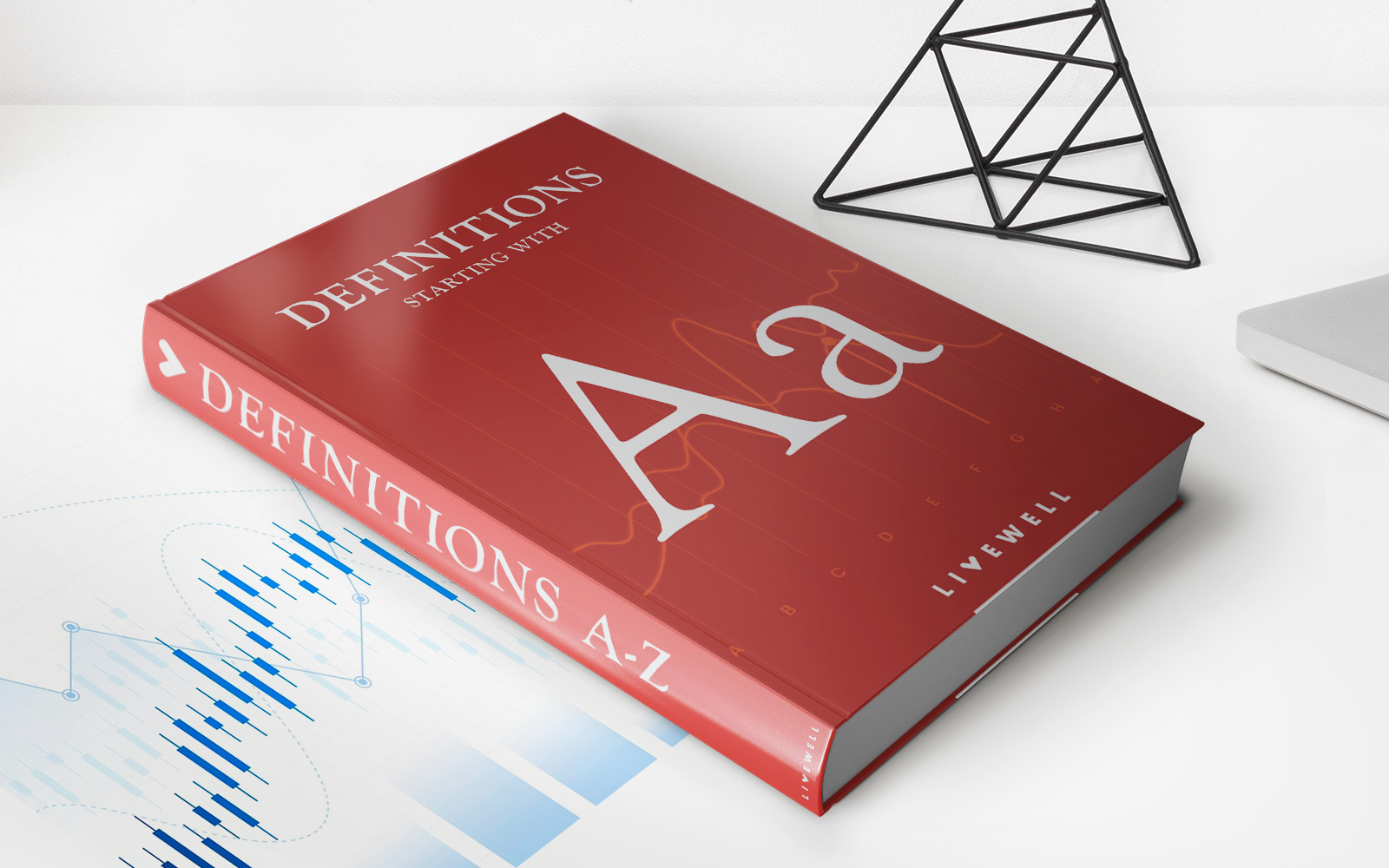Home>Finance>Which Circumstances Make A Savings Account The Best Investment To Earn Interest?


Finance
Which Circumstances Make A Savings Account The Best Investment To Earn Interest?
Modified: December 30, 2023
Discover the best circumstances that make a savings account the ideal investment option to earn interest. Enhance your finance strategies and maximize your returns today!
(Many of the links in this article redirect to a specific reviewed product. Your purchase of these products through affiliate links helps to generate commission for LiveWell, at no extra cost. Learn more)
Table of Contents
Definition of a Savings Account
A savings account is a type of deposit account offered by financial institutions, such as banks and credit unions, that allows individuals to securely store their money while earning interest on their deposits. It is a popular choice for those looking to save money for short-term goals or create an emergency fund. Unlike a checking account, which is primarily used for day-to-day transactions, a savings account is designed for accumulating and preserving funds over time.
When you open a savings account, you deposit money into the account, which is then held by the financial institution. The institution uses these funds to make loans to other customers or invest in various financial instruments. In return for allowing them to use your deposited funds, the financial institution pays you interest on the balance in your savings account.
The interest rate offered on a savings account can vary depending on the financial institution and prevailing market rates. This interest may be calculated and paid out on a regular basis, such as monthly or quarterly, or it may be compounded, where the interest is added to the account balance and begins earning interest itself. The interest earned on a savings account is typically lower than what you might earn from other investment options, but it is considered a low-risk investment.
Understanding Interest Rates
Interest rates play a crucial role when it comes to savings accounts as they determine how much additional income you can earn on your deposited funds. The interest rate is expressed as a percentage and it is important to understand how it works to make informed decisions about your savings.
In general, interest rates can be categorized into two types: fixed and variable. Fixed interest rates remain unchanged for a specific period of time, providing predictability and stability. On the other hand, variable interest rates can fluctuate over time, often in response to changes in the economy or the policies of financial institutions.
When considering a savings account, it is essential to compare the interest rates offered by different banks or credit unions. While higher interest rates may seem attractive, it is important to consider other factors such as fees, minimum balance requirements, and overall banking services provided. Additionally, keep in mind that interest rates are subject to change and may be influenced by economic conditions.
Another aspect of savings account interest rates to consider is compounding. Compounding interest occurs when the interest earned on your savings is added back into the account and begins earning additional interest. This can significantly boost your savings over time. The frequency at which interest is compounded varies among financial institutions, so it is worth comparing compounding rates when choosing a savings account.
It’s important to note that interest earned on savings accounts is generally subject to income tax. However, there are certain types of savings accounts, like some Individual Retirement Accounts (IRAs) or Health Savings Accounts (HSAs), that may offer tax advantages. So, be sure to consult with a tax professional to understand the tax implications of your specific savings account.
Understanding interest rates is crucial for maximizing the growth of your savings. By comparing rates, considering compounding, and being aware of the tax implications, you can make informed decisions about which savings account is best for your financial goals.
Factors to Consider When Choosing a Savings Account
Choosing the right savings account is an important decision that can greatly impact your financial goals. With numerous options available, it’s essential to consider several factors before making a choice. Here are some key factors to keep in mind when choosing a savings account:
- Interest Rates: One of the main factors to consider is the interest rate offered by the financial institution. Look for accounts with competitive rates to maximize your earnings. Keep in mind that interest rates can vary based on the account balance and type of savings account.
- Fees: Compare the fees associated with different savings accounts. Some accounts may have maintenance fees, transaction fees, or minimum balance requirements. Choose an account with minimal fees to avoid unnecessary charges and maximize your savings.
- Minimum Balance: Some savings accounts require a minimum balance to be maintained. Make sure you are comfortable with the minimum balance requirement and can meet it consistently to avoid penalties or fees.
- Accessibility: Consider the accessibility of your funds. Look for accounts that offer convenient options for deposits and withdrawals, such as online banking, mobile apps, or ATM access. It’s also important to check if there are any restrictions or penalties for withdrawing funds.
- Customer Service: Evaluate the customer service provided by the financial institution. Look for excellent customer reviews and consider the availability of support channels, such as phone, chat, or in-person assistance.
- Additional Services: Assess any additional services provided by the financial institution. Some savings accounts may come with perks like overdraft protection, automatic transfers, or tools for managing your finances.
- Financial Stability: Research the financial stability and reputation of the institution offering the savings account. Choose a trusted and well-established bank or credit union that provides a secure environment for your funds.
- Insurance Coverage: Check if the financial institution is insured by the FDIC (Federal Deposit Insurance Corporation) or NCUA (National Credit Union Administration). This insurance provides protection for your deposits in case of bank failure.
By considering these factors, you can select a savings account that aligns with your financial needs and goals. Remember to regularly review your savings account to ensure it continues to meet your requirements over time.
Low-Risk Investment Option
A savings account is considered a low-risk investment option, making it an attractive choice for individuals who prefer stability and security over higher potential returns. Here are some reasons why a savings account is a low-risk investment:
- FDIC/NCUA Insurance: Most savings accounts offered by banks are insured by the Federal Deposit Insurance Corporation (FDIC), while credit union accounts are insured by the National Credit Union Administration (NCUA). This means that even if the bank or credit union were to face financial issues or fail, your deposits are insured up to the specified limits (currently $250,000 per depositor, per account, for each ownership category). This insurance provides peace of mind knowing that your money is protected.
- Stable Returns: While the interest rates on savings accounts may not be as high as other investment options, they offer consistent and predictable returns. Unlike stocks or mutual funds, the value of your savings account won’t fluctuate with market conditions. This stability allows you to plan and budget effectively, especially for short-term financial goals.
- Capital Preservation: In a savings account, your principal amount is preserved, meaning there is minimal risk of losing your initial deposit. As long as you stay within the FDIC/NCUA insurance limits, your money is safe. This makes savings accounts an ideal choice for individuals who prioritize the preservation of their capital.
- Liquidity: One of the advantages of a savings account is its high liquidity. You can easily access your funds when needed, making it a reliable option for emergency expenses or unforeseen circumstances. Unlike certain investment vehicles with restrictions or penalties for early withdrawals, a savings account offers flexibility and quick access to your money.
- Diversification: While it’s important to have a diversified investment portfolio, allocating a portion of your funds to a savings account provides a level of stability and diversification. This ensures that you have a secure base to lean on during times of market volatility or economic uncertainty.
Although a savings account may not provide the highest returns compared to riskier investments, its low-risk nature ensures the safety and accessibility of your funds. It serves as a reliable foundation for building an emergency fund, saving for short-term goals, or preserving capital. Consider your risk tolerance and financial objectives when deciding how much to allocate to a savings account as part of your overall investment strategy.
High Liquidity and Accessibility
One of the key advantages of a savings account is its high liquidity and accessibility. This makes it an ideal option for individuals who value the ability to access their funds quickly and easily when needed. Here are some reasons why a savings account offers high liquidity:
- Easy Withdrawals: With a savings account, you can withdraw your funds whenever you need them. Most financial institutions offer multiple options for accessing your money, such as ATM withdrawals, debit cards, online transfers, or in-person visits to a branch. This convenience ensures that your funds are readily available to meet unexpected expenses or financial emergencies.
- No Lock-In Period: Unlike certain investment vehicles like Certificates of Deposit (CDs), which require you to keep your money locked in for a specific period, a savings account has no lock-in period. You have the freedom to deposit or withdraw funds at any time without incurring penalties or fees.
- Emergency Funds: Maintaining a savings account as an emergency fund allows you to have immediate access to cash in case of unforeseen circumstances such as job loss, medical expenses, or car repairs. Having these funds readily available provides financial security and peace of mind.
- Flexibility: Savings accounts provide flexibility in managing your money. You can deposit as little or as much as you want, depending on your financial situation. There are no restrictions on the frequency or amount of deposits you can make. This flexibility allows you to tailor your savings strategy to your specific needs and goals.
- Passive Income: In addition to high liquidity, a savings account also generates passive income in the form of interest. Even though interest rates may be relatively low, the accumulated interest can still provide a steady income stream. This added income can be used to supplement your everyday expenses or reinvested to grow your savings further.
Having high liquidity and accessibility is particularly beneficial during times of financial uncertainty or unexpected expenses. A savings account ensures that you can quickly access your funds without going through lengthy processes or facing restrictions. It offers flexibility and peace of mind, allowing you to maintain control over your finances and be prepared for any financial challenges that may arise.
Consistent and Predictable Returns
One of the appealing aspects of a savings account is the consistent and predictable returns it offers. While the interest rates on savings accounts may be lower compared to other investment options, they provide stability and reliability. Here’s why savings accounts offer consistent and predictable returns:
- Steady Interest Rates: Savings accounts typically have fixed interest rates for a certain period. This means that the interest you earn on your savings remains constant throughout that period, providing predictable returns. It allows you to accurately forecast the growth of your savings over time.
- Low Volatility: Unlike investments in the stock market or other higher-risk vehicles, savings accounts are not subject to market fluctuations or volatility. The account value remains stable even during economic downturns or market uncertainties. This makes it an appealing option for individuals who prefer a conservative and less risky approach to their investments.
- Compounding Interest: Many savings accounts offer compounding interest, where the interest is added to the account balance and begins earning more interest itself. This compounding effect helps to grow your savings faster over time. The more frequently interest is compounded, the more significantly your savings will increase.
- Short-Term Goals: Savings accounts are particularly suitable for achieving short-term financial goals. Whether you are saving for a vacation, a down payment on a home, or a major purchase, a savings account provides consistent and predictable returns that can help you reach your targets within the desired timeframe.
- Peace of Mind: The consistent and predictable returns from a savings account offer peace of mind. You have a clear understanding of how much your savings will grow over time, allowing you to plan and budget effectively. This stability provides reassurance and financial security, especially for individuals who are risk-averse or have specific financial goals in mind.
While savings accounts may not offer the highest returns in comparison to riskier investment options, they provide a reliable and secure way to grow your savings steadily. The consistent and predictable returns make savings accounts an ideal choice for individuals who prioritize stability and prefer to avoid the uncertainties associated with more volatile investments.
Tax Advantages
In addition to providing a safe and accessible way to save money, savings accounts also offer certain tax advantages. Understanding these tax benefits can help maximize the returns on your savings. Here are some tax advantages of having a savings account:
- Tax-Deferred Growth: The interest earned on a savings account is generally subject to income tax. However, certain types of savings accounts, such as Individual Retirement Accounts (IRAs) or Health Savings Accounts (HSAs), offer tax-deferred growth. This means that the interest earned on these accounts is not taxed until you withdraw the funds. This allows your savings to grow more effectively without the immediate impact of taxes.
- Tax-Free Withdrawals: Some savings accounts, like Roth IRAs, offer tax-free withdrawals on both the principal amount and the accumulated interest. This means that when you withdraw funds from a Roth IRA, you do not owe any taxes, provided you meet certain requirements and guidelines. This can be particularly advantageous during retirement when you may need to access your savings without incurring additional tax liabilities.
- Savings for Education: Certain savings accounts, such as Education Savings Accounts (ESAs) or 529 plans, offer tax advantages specifically designed for saving for education expenses. Contributions to these accounts may be tax-deductible, and the growth of the savings is typically tax-free if used for qualified education expenses. This can help make education costs more affordable and provide tax benefits for families saving for their children’s future education.
- Reduced Taxable Income: Contributions to certain savings accounts, such as Traditional IRAs or Health Savings Accounts, may be tax-deductible. These contributions effectively reduce your taxable income for the year, allowing you to potentially lower your overall tax liability. This can provide immediate tax benefits while simultaneously helping you save for retirement or medical expenses.
It’s important to note that tax laws and regulations can change over time, so it’s advisable to consult with a tax professional or financial advisor for personalized advice based on your specific circumstances. They can provide insights into the available tax advantages and help you make the most informed decisions regarding your savings and tax planning strategies.
By capitalizing on the tax advantages offered by savings accounts, you can potentially increase the growth of your savings and reduce your tax burden, ultimately maximizing the returns on your hard-earned money.
Long-Term Saving Goals
A savings account can be a valuable tool for achieving long-term financial goals. Whether you’re saving for a down payment on a home, planning for retirement, or building a college fund for your children, a savings account offers several benefits for long-term savings. Here’s why a savings account is well-suited for long-term saving goals:
- Security and Stability: A savings account provides a safe and secure way to grow your savings over time. The low-risk nature of a savings account ensures that your principal amount is protected, making it an excellent option for preserving your capital while earning steady returns.
- Consistent Growth: While the interest rates offered by savings accounts may be modest, they provide consistent growth over the long term. This allows you to steadily increase your savings and accumulate wealth for your future financial needs.
- Flexibility: Savings accounts offer you the flexibility to contribute to your savings regularly. You can set up automatic transfers from your checking account or make manual deposits as you are able. This flexibility allows you to adjust your savings contributions based on your financial situation and changing circumstances.
- Regular Monitoring and Goal Tracking: Keeping your savings in a dedicated account allows you to easily monitor the progress of your long-term goals. You can regularly review your account statements, track the growth of your savings, and make adjustments to your saving strategy as needed.
- Capital Preservation: The stability of a savings account ensures that your funds are readily available when you need them to achieve your long-term goals. Unlike riskier investment options, a savings account minimizes the possibility of losing your principal amount, providing peace of mind throughout your saving journey.
- Convenience and Accessibility: Savings accounts offer high liquidity, allowing you to access your funds easily whenever necessary. This convenience is particularly valuable for long-term goals where you may need to tap into your savings periodically or make incremental withdrawals to fund various milestones along the way.
While a savings account alone may not generate the highest returns compared to other investment avenues, it serves as a solid foundation for long-term savings. You can complement your savings account with other investment strategies to potentially maximize returns while still benefiting from the security and stability of a savings account.
By establishing a savings account for your long-term saving goals, you can build a strong financial foundation and work towards achieving your aspirations with confidence and peace of mind.
Sufficient Emergency Fund
Having a sufficient emergency fund is a critical component of overall financial stability. A savings account is an excellent tool for building and maintaining an emergency fund. Here’s why a savings account is well-suited for this purpose:
- Quick and Easy Access: Emergencies can arise unexpectedly, and having immediate access to funds is crucial. A savings account provides high liquidity, allowing you to withdraw money promptly through various channels like ATMs, online transfers, or in-person visits to a branch. This ensures that you can access your funds quickly when emergency expenses arise.
- Financial Security: An emergency fund built in a savings account provides a sense of financial security. Knowing that you have a safety net in place can alleviate stress and anxiety during challenging times. It helps you face unexpected situations, such as medical emergencies, home repairs, or job loss, with confidence, knowing that you have funds to fall back on.
- Capital Preservation: Savings accounts prioritize capital preservation, ensuring that your deposited funds are safeguarded. With a savings account, there is minimal risk of losing your principal amount, making it a reliable and secure option for storing your emergency funds.
- Stability and Predictability: Savings accounts provide consistent and predictable returns through interest. Although interest rates may be relatively low compared to other investments, they offer stability and predictability. This allows you to forecast the growth of your emergency fund and plan accordingly.
- Flexible Contribution Options: Savings accounts offer flexibility in terms of contribution amounts and frequency. You can contribute to your emergency fund as often as you prefer, whether it’s through monthly automatic transfers or periodic lump sum deposits. This flexibility allows you to tailor your savings strategy to fit your budget and individual circumstances.
- Separation from Regular Expenses: Keeping your emergency fund in a dedicated savings account helps separate it from your everyday expenses. By having a distinct account, you avoid the temptation to spend funds allocated for emergencies on nonessential items. This separation ensures that your emergency fund remains intact and available when you need it most.
An emergency fund is an essential part of financial planning, providing a safety net for unforeseen circumstances. By maintaining your emergency fund in a savings account, you ensure that your funds are easily accessible, secure, and capable of providing financial stability during times of crisis.
Consider establishing an emergency fund in a savings account as a priority, aiming to accumulate several months’ worth of living expenses. This will provide you with peace of mind and a foundation of financial resilience.
Conclusion
A savings account serves as a versatile and valuable financial tool for individuals and families alike. Whether you’re looking to earn interest on your deposits, save for short-term goals, or build an emergency fund, a savings account offers numerous benefits and advantages. Here’s a recap of what makes a savings account an attractive choice:
A savings account provides a secure and accessible way to store your money while earning consistent and predictable returns. It offers high liquidity, allowing you to readily access your funds whenever needed, making it suitable for short-term goals and emergency expenses. Additionally, savings accounts provide a low-risk investment option, offering stability and capital preservation. With FDIC/NCUA insurance coverage, your deposited funds are protected, providing peace of mind.
Moreover, savings accounts come with tax advantages, such as tax-deferred growth or tax-free withdrawals for specific account types. This can help maximize the growth of your savings and reduce your tax liabilities. Further, savings accounts serve as an excellent tool for long-term saving goals, providing a secure foundation for building wealth and achieving financial milestones.
By having a savings account, you can establish and maintain an emergency fund, providing financial security during unexpected situations. With the flexibility to contribute regularly and the stability of the account, you can confidently face any financial challenges that come your way.
In conclusion, a savings account is a versatile financial tool that offers security, accessibility, and the potential for consistent growth. Whether you’re saving for short-term goals, building an emergency fund, or planning for long-term objectives, a savings account provides the foundation for your financial success. Evaluate the factors that are important to you, such as interest rates, fees, and accessibility, when choosing a savings account that aligns with your individual needs and goals.
Remember, while a savings account may not provide the highest returns compared to riskier investments, it offers stability, liquidity, and peace of mind. It’s an essential component of your financial plan that allows you to establish a strong financial foundation and work towards a secure future.














